Mukesh
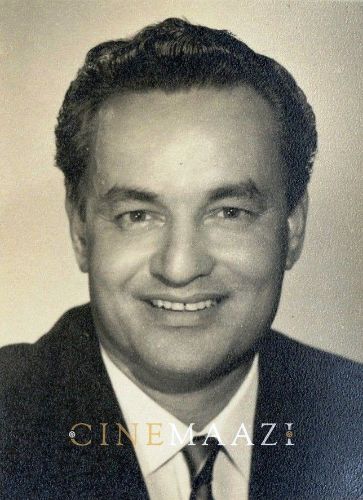
Subscribe to read full article
This section is for paid subscribers only. Our subscription is only $37/- for one full year.
You get unlimited access to all paid section and features on the website with this subscription.
Not ready for a full subscription?
You can access this article for $2 , and have it saved to your account for one year.
- Real Name: Mukesh Chand Mathur
- Born: 22 July, 1923 (Delhi)
- Died: 27 August, 1976 (Detroit, USA)
- Primary Cinema: Hindi
- Spouse: Saral Trivedi Raichand
- Children: Nitin Mukesh , Rita, Nalini, Mohnish, Namrata
Among the most famous singers that the Hindi film industry has ever produced, Mukesh is known for his collection of soulful and melodious songs. Dubbed as the Man with the Golden Voice, he made a deep impression in the field of playback singing, carving a distinct place for himself with songs that celebrate his inimitable pain-imbued voice that could express multiple shades of melancholy. His manner of singing, with perfect tone and diction, exuded a sorrow that could not be imitated by anyone else. Commanding a huge fan following, the soft-spoken singer’s vast cache of well-loved songs include Jeena yahan marna yahan, Hothon pe sacchai rehti hai, Dost dost na raha, Sawan ka mahina, Bas yehi apradh, Jane kahan gaye woh din, Kahin door jab din dhal jaye, Ek pyar ka nagma hain, Main na bhoolonga, Ek din bik jayega, Main pal do pal ka sahayar hoon, Suhani chandni raatein, and Chanchal shital nirmal komal. He won multiple Filmfare awards for best singer for Sab kuch seekha humne from Anari (1959), Sabse bada naadan from Pehchan (1970), Jai bolo beimaan ki from Be-Imaan (1972), and Kabhi kabhie mere dil mein from Kabhi Kabhie (1976). His song Kai baar yuhi dekha hai from Rajnigandha (1974) won him the National Film Award for Best Male Playback Singer.
Born in Delhi on 22 July 1923, and educated there, he quit studies after the 10th standard and got a job with the Delhi Department of Public Works. He found his idol during his teenage years itself—popular actor-singer K L Saigal. Being good-looking, he not only imitated Saigal’s singing but also nursed dreams of acting onscreen. He experimented with voice recordings and simultaneously honed his singing ability. Hearing him sing at the wedding of his sister, renowned actor Motilal, who was a distant cousin of his, noted a spark in the young boy. Motilal was impressed enough to bring the 17-year-old lad to Bombay, where he enrolled him in singing training, to refine his voice.
Mukesh bagged his break with Ranjit Movietone’s film Nirdosh (1941), when he was assigned a ghazal – Dil hi bujha hua ho toh fasl-e-bahaar kya by music composer Ashok Ghosh. Neither the song nor the film made waves. He was also the hero of the film, paired opposite Nalini Jaywant. He went on to act up until 1956, featuring in minor roles in films such as Dukh Sukh (1942), Roomal (1949), and Aah (1953), and also starring in leading roles opposite Suraiya in Mashooka (1953), and Usha Kiran in Anurag (1956).
Rendering a few songs for himself, he went on to provide playback for Motilal for composer Bulo C Rani in Moorti (1945), followed by a song for the Anil Biswas composed Pehli Nazar (1945) which were again featured on Motilal. The song became a hit, and Mukesh won considerable attention for his singing which bore a strong resemblance to Saigal’s.
While singing offers poured his way post, Pehli Nazar, credit goes to Anil Biswas for advising him to stop copying Saigal, and develop his own style. In those early days, Mukesh went on to render well-received songs such as Ja parwane ja from Rajputani (1946), Jab baadal ghir ghir ayenge from Dak Bangla (1947), Kabhi dil dil se takraata toh hoga from Anokhi Ada (1948), and Ik teer chalanewale ne from Pugree (1948).
Mukesh is said to have finally discovered his own style with the films Mela (1948) and Andaz (1949). Under the music direction of Naushad, Mukesh rendered unforgettable hits like Tu kahe agar, Jhoom jhoom ke naacho aaj, Hum aaj kahin dil kho baithe, and Toote na dil toote na. These four solos established him as a well-known playback singer overnight. In the same year – 1948, Mukesh sang for Raj Kapoor for the film Aag. His voice perfectly matched the helplessness of Kapoor’s character portrayed onscreen in the song Zinda hoon is tarah. There was no looking back after this and the Mukesh-Raj Kapoor partnership endured till the year 1975. Mukesh became the de facto voice of Kapoor for all R K Films productions. Kapoor was apparently also considering Manna Dey at the time; however, the connection between Mukesh and Kapoor was formed and thrived. His voice was tailor-made for Raj Kapoor’s screen image of Raju—a happy-go-lucky tragi-comic tramp; an Indian version of the great Charlie Chaplin. He voiced a large number of songs for Raj Kapoor, singing largely of heartbreak and despair in films such as Awaara (1951), Shree 420 (1955), Parvarish (1958), Anari (1959), Sangam (1964), Mera Naam Joker (1970). Mukesh’s last recording with Raj Kapoor was the song Ek din bik jaayega from the film Dharam Karam (1975), which had music composed by R D Burman. This strong association led to Kapoor remarking, “Mukesh is my soul.”
Mukesh also rendered songs for others through the 50s, 60s, and 70s. While he had a long association with music directors Shankar-Jaikishan who were part of the RK camp, Mukesh sang for them in outside productions as well. His voice, with its special pitch and timbre, was immensely popular across the country, as well as abroad in countries like Russia where Raj Kapoor was a huge sensation. Other fans of his included the Chinese premier, Chou-en-lai, and Pakistan’s PM Benazir Bhutto.
Mukesh poured his heart and soul into his renditions. From Dost dost na raha to Kabhi kabhie mere dil mein, his resonating voice instantly touched hearts. Singing all manner of songs including love songs and peppy numbers, he is most memorable for the songs of sorrow he rendered, which conveyed the pain of unrequited love, betrayal, the vagaries of destiny, helplessness and appeals to the Almighty.
Some critics derided Mukesh, dubbing him an imperfect singer who had a nasal twang and who would often miss a note or a beat. High-pitched songs were also difficult for him, given his limited vocal range made. Yet, despite the limitations and flaws, the secret to his success was summed by Kalyanji of noted composer Kalyanji-Anandji fame, thus: “Anything which comes straight from the heart always touches you. Mukesh's singing was like that. That's why despite its simplicity, straightforwardness, and so-called flaws it always made a great impact.” Mukesh himself took the criticism lightly, even joking about it on occasion. During his live programs, he was known to remark to the audiences that Lata Mangeshkar is regarded as the greatest singer because she had an out-of-tune singing partner like himself!
He also rendered several non-film songs, including ghazals and geets, also singing in languages like Gujarati. In 1969, when quality film songs became increasingly hard to find, Mukesh, along with Talat Mahmood, recorded ‘humradeef’ ghazals, which are essentially two ghazals with the same ending words in every couplet. They were composed by Murli Manohar Swaroop. They sang Ghalib and Daag, as well as Ghalib and Jigar.
Mukesh married Saral Trivedi, daughter of millionaire Raichand Trivedi. Given his profession which was not considered entirely suitable back in the day, the consent of Saral's father to their union could not be obtained, leaving the couple with no option but to elope. They wed in a temple in Kandivali on 22 July 1946, on Mukesh’s 23rd birthday, with the help of actor Motilal and from the residence of R. D. Mathur. They celebrated their thirtieth wedding anniversary on 22 July 1976, four days before Mukesh’s departure for the USA for a show, which was to prove his last. The couple had five children – Rita, Nitin, Nalini, Mohnish, and Namrata. Nitin followed in his footsteps, becoming a successful singer.
Mukesh passed away following his fifth heart attack, on 27 August 1976, while preparing for a stage show in Detroit. When the news of his death reached the film industry, Raj Kapoor said, “I have lost my voice”.
-
Filmography (10)
SortRole
-
Aayee Teri Yaad 1980
-
Abhi To Jee Lein 1977
-
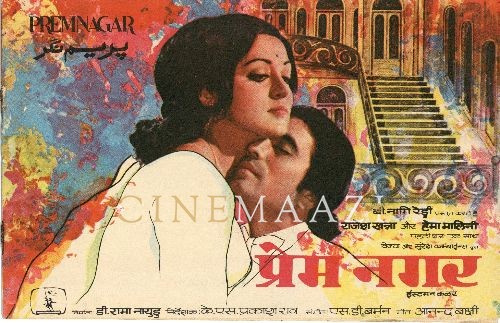
Prem Nagar 1974
-
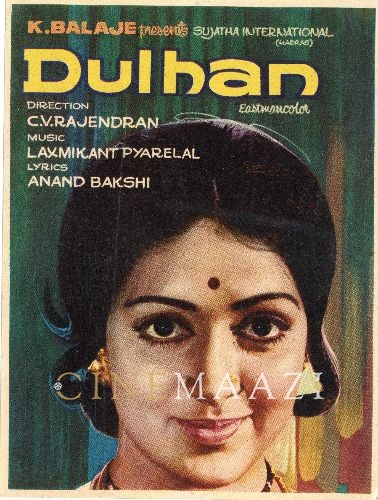
Dulhan 1974
-
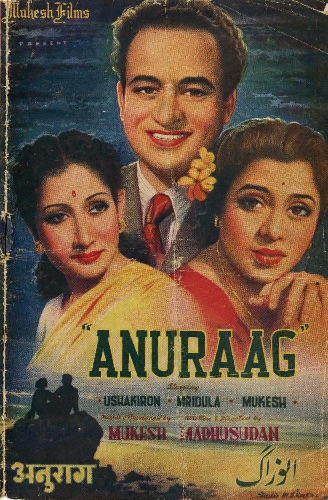
Anuraag 1956
-
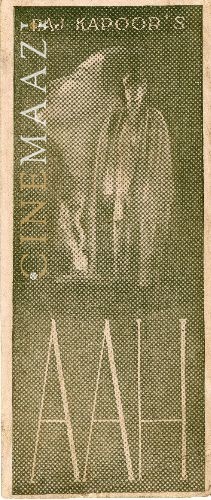
Aah 1953
-
Maashooqaa 1953
-
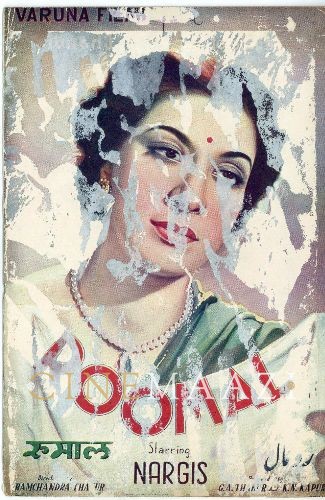
Roomal 1949
-
Jhalak 1947
-
Noor-e-Arab 1946
-









.jpg)



